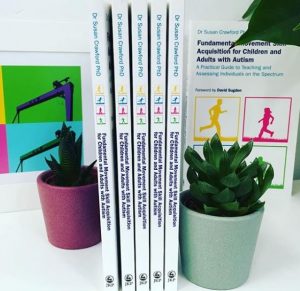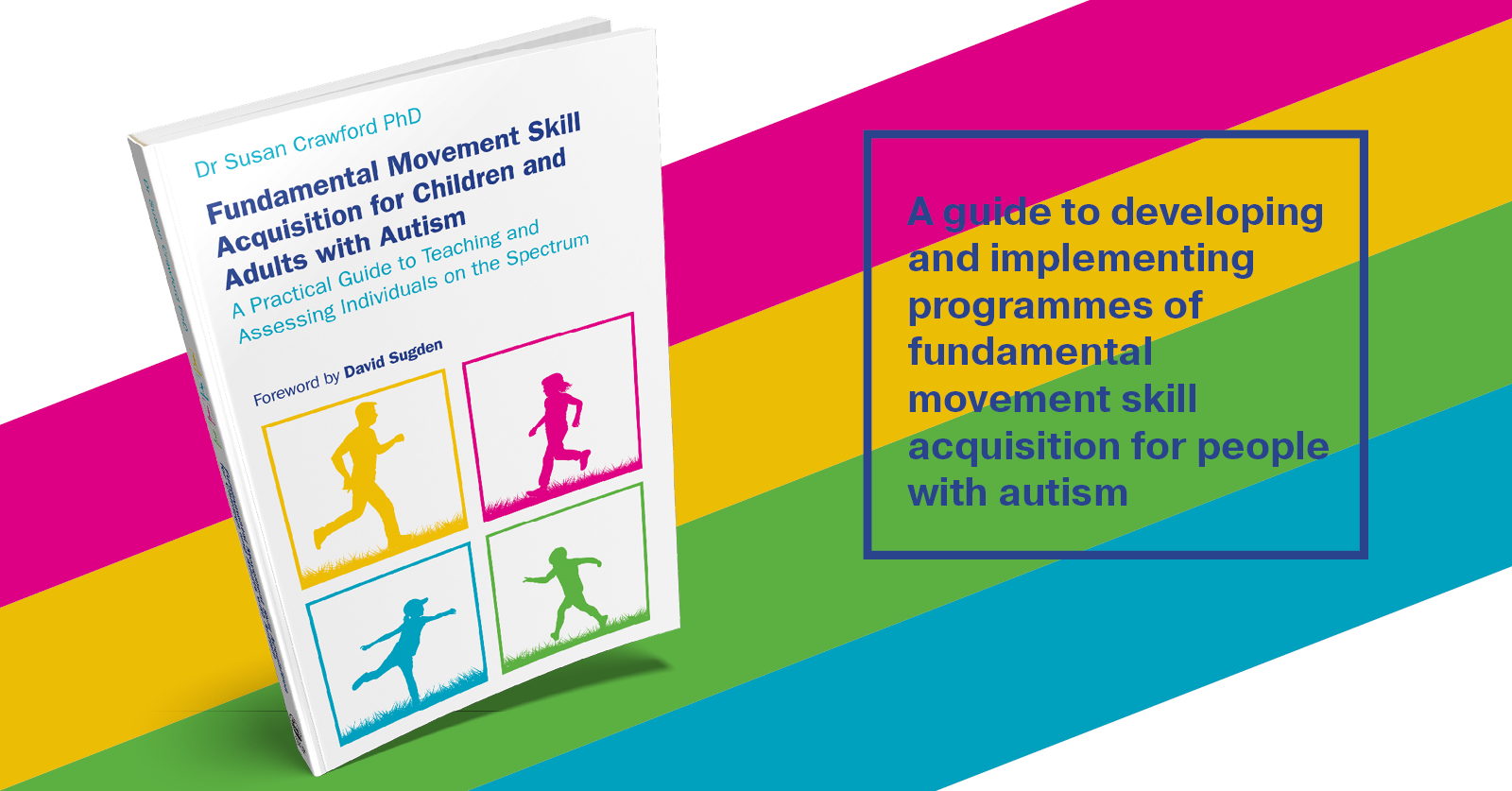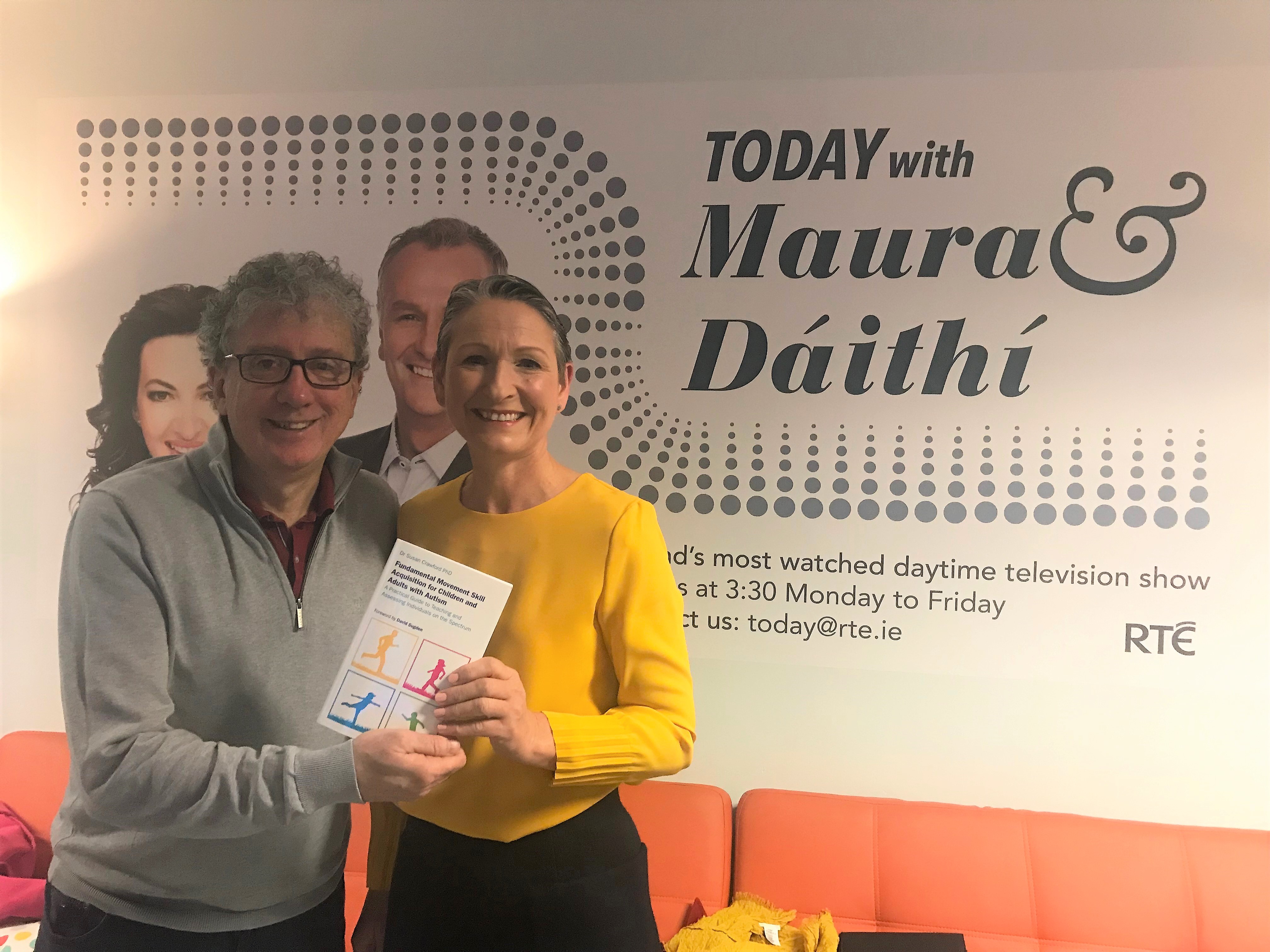Dr Susan Crawford has written a practical guide to teaching and assessing fundamental movement skill for individuals on the autism spectrum. To find out more about who the book is for and what it’s all about, we asked Susan a few questions.
What exactly is meant by the term Fundamental Movement Skills (FMS)?
FMS are the basic skills of movement we use in everyday life. These include running, walking, catching, throwing, jumping, general coordination and balance.
Why is it important for people on the autism spectrum to practise these skills?
People on the autism spectrum very often present with either delay developing these skills or may have impairment of the skills themselves. These skills are the alphabet of movement. Acquiring these skills at an early age provides opportunity to participate in quality physical activity, sport and exercise. Apart from the obvious physical health benefits, being able to engage in physical activity, sport and exercise provides avenues to meet people, develop social skills, promote the use of language and communication and help with feelings of wellbeing and happiness through the release of endorphins.
Can you tell us about your professional background and how you came to be interested in this area?
I originally trained and worked as a nurse and midwife and worked in these areas internationally. I went on to complete a degree in Sport and Exercise Science as a mature student and when my own son was diagnosed with autism I returned to University to complete a PhD in Autism and Movement Skill Development. After working as a Sport Scientist in the area of exercise prescription, I started working as a University lecturer in University College Cork. I have taken time out this past year to drive on the AutismActive, Autism Aware agenda and have been rolling out this training in Ireland. I am also about to undertake 2,500km run of the Wild Atlantic Way from March 23rd addressing autism awareness and also promoting the active piece for people on the spectrum.
Who is the book written for, and what do you hope they’ll get out of it?
The book is written for parents, teachers, Classroom assistants, Social Care Workers, Health Care professionals, OTs, physios etc. It provides a step by step account of why, how, when, where and with whom programmes are effectively planned and delivered. It is also supported with online resources on www.getautismactive.com
Are there any myths or outdated beliefs about autism and movement that you would like to debunk?
Yes, traditionally individuals on the spectrum were not encouraged to engage in physical activity, sport and exercise as often it was felt they could not learn the skills and also they could not handle engaging with others and dealing with failure. All of these are of course untrue. Individuals with ASD are every bit as capable of learning FMS and participating the same as everyone else, if they are given the appropriate support, teaching and learning opportunities to do so. I have never met someone with ASD who could not learn FMS but I have met many parents, educators, practitioners etc who are not willing to adapt, go the extra mile or think outside the box to get them there.
Is there anything you learned while working on this book that you didn’t know before?
I learned that many professionals are not given appropriate training at undergraduate level to address FMS development for this population and this book will certainly address this, especially when used in conjunction with the online resources on www.getautismactive.com
Are there ideas in the book that can benefit those who are not autistic?
Absolutely, these skills, pointers, techniques and interventions work for everyone. In a society where health issues associated with inactivity and sedentary lifestyles are on the rise, this book can help reverse these trends as a step by step guide to quality movement. With movement competence comes movement confidence, we learn to move and we move to learn.
 Where can people find out more about FMS and the book?
Where can people find out more about FMS and the book?
The book is available online through Jessica Kingsley Publishers, Amazon, Waterstones, etc. You can also order it into your local bookshop if you prefer. The support online resources and courses are available on www.getautismactive.com
If you would like to read more articles like this and get the latest news and offers on our books about autism, why not join our mailing list? We can send information by email or post as you prefer. You may also be interested in liking our Autism, Asperger’s and related conditions Facebook page.

